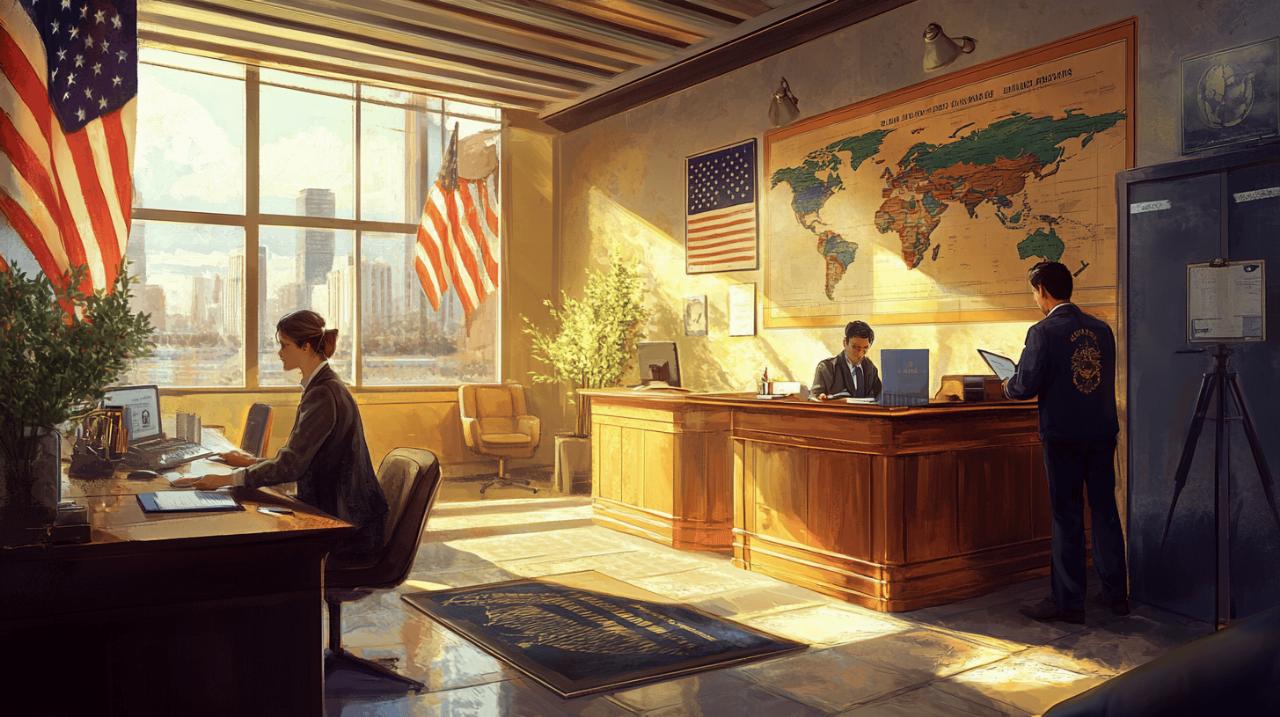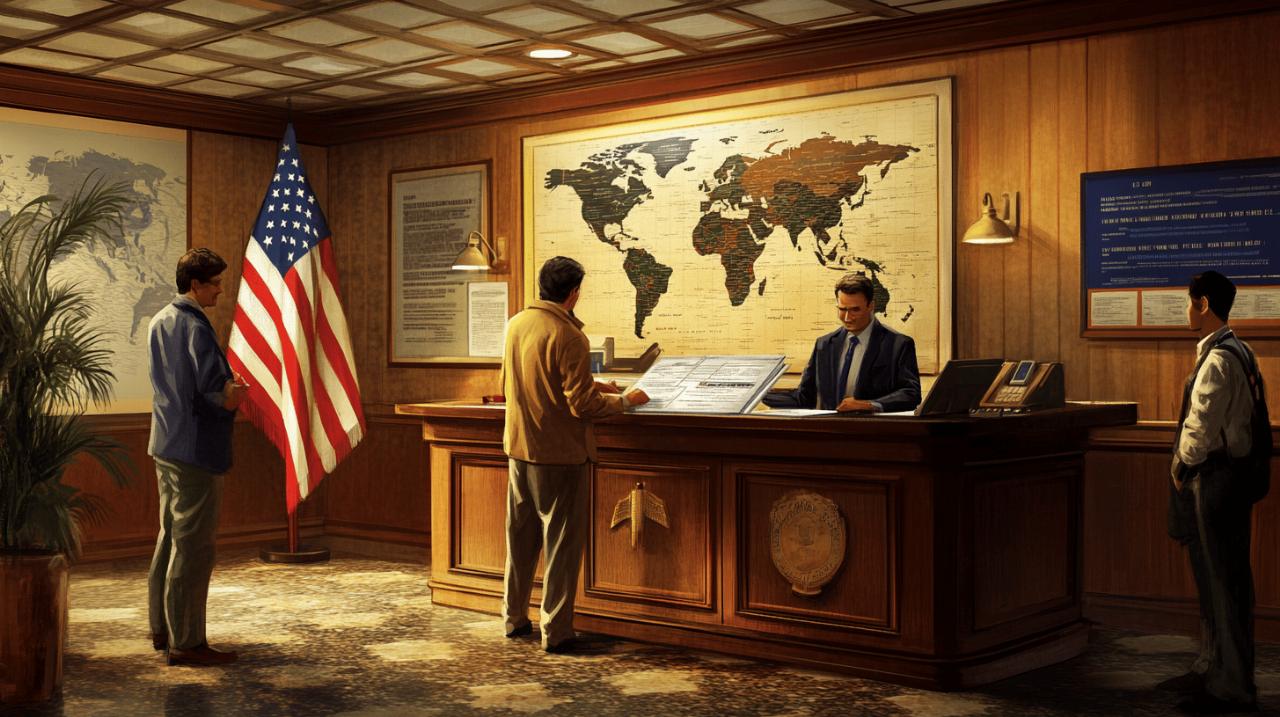Navigating the complex world of US visas can be daunting, especially when dealing with specific categories like the I visa. Whether you're a media professional, journalist, or foreign correspondent planning to work in the United States, understanding the application process, required documentation, and associated costs is essential for a successful visa application. This comprehensive guide will walk you through everything you need to know about obtaining a US I visa, from the application form to specific conditions.
Understanding the us non-immigrant visa system
The United States offers numerous non-immigrant visa categories, each designed for specific purposes and durations of stay. Unlike immigrant visas that grant permanent residency, non-immigrant visas are temporary authorizations that allow foreign nationals to enter the US for specific activities. These visas are issued based on the purpose of your travel, such as tourism, business, study, or in the case of I visas, information media work.
Types of non-immigrant visas available
The US Department of State categorizes non-immigrant visas alphabetically from A to V. Common categories include B-1 for business visitors, B-2 for tourists, F-1 for students, H-1B for specialty occupation workers, and J-1 for exchange visitors. Each visa type has its own eligibility criteria, application process, and limitations regarding activities permitted during your stay in the United States. When selecting the appropriate visa category, it's crucial to accurately match your intended purpose of travel with the corresponding visa classification to avoid potential complications or denial.
The i visa category explained
The I visa is specifically designed for representatives of foreign media, including press, radio, film, or other information media. This category enables journalists, film crews, editors, and other media professionals to enter the United States temporarily to engage in their profession while representing foreign media outlets. To qualify for an I visa, you must be employed by a foreign media organization and traveling to the US to work in a media capacity. The I visa differs from other work visas as it's specifically tailored to international information exchange through legitimate media outlets. This visa allows for multiple entries and can be valid for up to five years, depending on reciprocity agreements between the United States and your country of citizenship.
Application process and documentation requirements
The application process for an I visa involves several steps, beginning with the completion of the DS-160 form, scheduling an interview at a US Embassy or Consulate, preparing the necessary documentation, and attending the visa interview. Understanding each step thoroughly can significantly improve your chances of approval and streamline the application process.
Completing the formulaire: step-by-step guide
The first step in applying for an I visa is completing the DS-160 form, also known as the Online Nonimmigrant Visa Application. This comprehensive form collects personal information, travel plans, and background details. According to the US Department of State, the form takes approximately 90 minutes to complete. When filling out the DS-160, ensure you're using a supported web browser such as Internet Explorer 11 or higher, Firefox, or Google Chrome 58, as Safari and Microsoft Edge are not compatible with the application system. The system will timeout after 20 minutes of inactivity, so it's advisable to have all necessary information ready before starting the application. After submitting the DS-160, you'll receive a confirmation page with a barcode, which you must print and bring to your visa interview. While others can assist with the application, you must sign it yourself unless specifically exempt.
Essential documents and biometric information
Alongside your completed DS-160 form, you'll need to prepare several supporting documents for your I visa application. These include a valid passport with at least six months validity beyond your intended period of stay in the United States, a recent photograph meeting the specified requirements, and evidence of your media credentials. Additionally, you'll need to provide proof of employment by a foreign media organization and a letter from your employer describing your role and the purpose of your trip to the US. During your visa interview, the US Embassy will collect your biometric information, including fingerprints. If you have a criminal record, you must disclose this information on your application and may need to provide an ACRO police certificate issued within six months of your visa interview. The Rehabilitation of Offenders Act does not apply to US visa law, meaning even spent convictions must be declared.
Costs and financial considerations
 Understanding the financial aspects of obtaining a US I visa is essential for proper planning. The application process involves various fees, and additional costs may arise depending on your specific circumstances and requirements. Being prepared for these expenses will help avoid unexpected financial burdens during your application journey.
Understanding the financial aspects of obtaining a US I visa is essential for proper planning. The application process involves various fees, and additional costs may arise depending on your specific circumstances and requirements. Being prepared for these expenses will help avoid unexpected financial burdens during your application journey.
Prix and Fee Structure in Euros
The standard non-immigrant visa application fee for an I visa is approximately €160, equivalent to $160 or £100. This fee is non-refundable regardless of whether your visa application is approved or denied. Payment methods vary by location, so it's advisable to check the specific US Embassy or Consulate website for acceptable payment options. In some cases, additional fees may apply, such as the visa issuance fee based on reciprocity with your country of citizenship. After your interview, if your visa is approved, your passport will be returned via courier service, which may incur additional charges. For instance, in the UK, the DX Secure courier service fee starts at around €21 or £18. Always check the most current fee information on the official US Department of State website, as prices may change periodically.
Travel insurance and medical coverage requirements
While not mandatory for visa approval, comprehensive travel insurance including medical coverage is highly recommended when traveling to the United States. Medical care in the US is notoriously expensive, and without adequate insurance, you could face significant financial burdens if you require medical attention during your stay. When selecting travel insurance, ensure it covers medical emergencies, hospitalization, and repatriation. Some employers may provide coverage for staff traveling abroad on assignment, so check with your media organization about existing policies before purchasing separate insurance. Additionally, consider coverage for equipment if you're traveling with valuable media gear such as cameras, recording devices, or computers. Having proper documentation of your insurance coverage may also strengthen your visa application by demonstrating you're well-prepared for your trip.
Special circumstances and considerations
Certain factors may affect your US I visa application process, including your eligibility for visa waiver programs, emergency processing options, and country-specific regulations. Being aware of these special circumstances can help you navigate potential challenges and expedite your visa application when necessary.
Esta visa waiver programme eligibility
The Electronic System for Travel Authorization or ESTA is part of the Visa Waiver Program that allows citizens from specific countries to travel to the United States for tourism or business for stays of 90 days or less without obtaining a visa. However, it's important to note that the ESTA is not suitable for those planning to work in the United States, including media professionals. If you're traveling to the US specifically for media work, you must apply for an I visa regardless of your country of citizenship. That said, understanding ESTA eligibility is still valuable knowledge, especially if you frequently travel to the US for different purposes. The ESTA application is completed online, costs approximately €14, and remains valid for two years or until your passport expires, whichever comes first. Always verify your eligibility for the Visa Waiver Program before considering this option.
Emergency processing and country-specific regulations
In situations requiring urgent travel to the United States, such as breaking news events or last-minute assignments, expedited visa processing may be available. Contact your nearest US Embassy or Consulate to inquire about emergency appointment options. Each diplomatic mission has its own procedures for handling urgent cases, so early communication is essential. Additionally, be aware that certain country-specific regulations may affect your visa application. Citizens of countries like Somalia, Sudan, Libya, and Syria may face additional scrutiny or processing requirements. The typical waiting time for an interview appointment is around two weeks, with visa processing taking approximately four working days after the interview. However, if administrative processing is required, particularly for applicants with criminal records or from certain countries, the process can extend to six months or more. The global COVID-19 pandemic has also introduced various health and travel regulations, which continue to evolve, so stay informed about current requirements before planning your trip.



